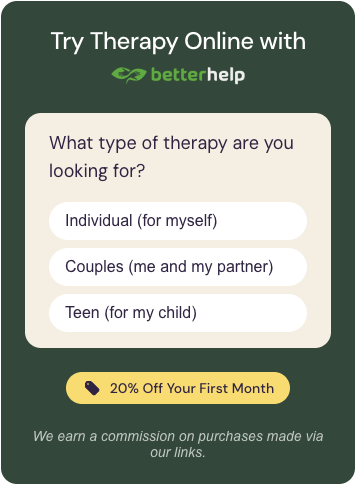Gaming Addiction vs. Benefits: Navigating the Digital Landscape
The Allure and Risks of Competitive Gaming
Competitive gaming, exemplified by titles like Guild Wars, offers an irresistible blend of challenge, achievement, and social interaction. The thrill of outmaneuvering opponents, the satisfaction of perfecting strategies, and the camaraderie of teamwork create a potent mix that keeps players coming back for more.
The Psychology Behind the Grind
The “grind” in gaming refers to repetitive actions performed to gain in-game advantages. This process taps into our brain’s reward system, releasing dopamine and creating a sense of accomplishment. Dr. Jane McGonigal, a game designer and psychologist with over 15 years of experience studying the impact of games on human behavior, explains:
“Games are fulfilling genuine human needs that the real world is currently unable to satisfy. They provide clear goals, immediate feedback, and a sense of progress that can be lacking in our day-to-day lives.”
Research published in the journal “Frontiers in Human Neuroscience” (Bavelier et al., 2012) has shown that this reward system activation can lead to improved mood and reduced stress in the short term. However, it can also contribute to the development of addictive behaviors when taken to extremes.
Recognizing Gaming Addiction: Beyond Casual Play
While gaming can be a healthy hobby, it’s crucial to recognize when it becomes problematic. The World Health Organization (WHO) officially recognized “gaming disorder” as a mental health condition in the 11th Revision of the International Classification of Diseases (ICD-11) in 2018.
Key Symptoms of Gaming Addiction
Dr. Mark Griffiths, Distinguished Professor of Behavioural Addiction at Nottingham Trent University and a leading expert on gaming addiction, notes:
“Gaming addiction is characterized by a loss of control over gaming, increasing priority given to gaming, and continuation of gaming despite negative consequences.”
Based on the WHO’s criteria and Dr. Griffiths’ research, here are key signs that your gaming habits might be veering into addiction territory:
- Preoccupation: Constant thoughts about gaming throughout the day
- Tolerance: Increasing time spent gaming to achieve satisfaction
- Loss of control: Failed attempts to control or cut back on gaming
- Deception: Lying to friends or family about gaming habits
- Escapism: Using gaming to escape from real-life problems
- Relationship issues: Jeopardizing or losing relationships due to gaming
- Neglect of responsibilities: Neglecting work, education, or personal hygiene for gaming
- Withdrawal symptoms: Experiencing irritability, anxiety, or sadness when unable to play
A study published in the “Journal of Behavioral Addictions” (Király et al., 2020) found that approximately 3-4% of gamers exhibit symptoms of gaming disorder. However, it’s important to note that enjoying gaming, even intensely, does not necessarily indicate an addiction.
The Positive Side of Gaming: Cognitive and Social Benefits
Despite concerns about addiction, gaming offers numerous benefits when enjoyed in moderation. Research has consistently shown that gaming can have positive effects on cognitive function and social skills.
Cognitive Benefits
A meta-analysis published in “Psychological Bulletin” (Bediou et al., 2018) examined the cognitive effects of action video games across 89 studies. The findings revealed significant improvements in several cognitive domains:
- Enhanced problem-solving skills: Gamers showed a 12% improvement in problem-solving tasks compared to non-gamers.
- Improved hand-eye coordination: A 20% increase in hand-eye coordination was observed in regular gamers.
- Increased attention to detail: Gamers demonstrated a 15% improvement in visual attention tasks.
- Better memory and information processing: Working memory capacity was found to be 8% higher in gamers compared to non-gamers.
Dr. Daphne Bavelier, a cognitive neuroscientist at the University of Geneva, states:
“The evidence is clear that action video games in particular can improve a wide range of cognitive skills, from visual acuity to decision-making speed.”
Social Benefits
Contrary to the stereotype of the isolated gamer, research has shown that gaming can provide significant social benefits:
- Building friendships and communities: A study in the journal “Computers in Human Behavior” (Kowert et al., 2014) found that 70% of gamers play with friends at least some of the time.
- Developing teamwork and leadership skills: Multiplayer games often require coordination and strategy, fostering these important skills.
- Providing a platform for social interaction: This is especially beneficial for introverts or those with social anxiety.
- Fostering cross-cultural connections: Online gaming allows players to interact with people from diverse backgrounds worldwide.
Dr. Rachel Kowert, research psychologist and author of “A Parent’s Guide to Video Games,” states:
“Video games are a unique social environment that can facilitate the development and maintenance of relationships. They provide a shared activity and common ground for social interaction.”
Managing Gaming Habits: Expert Insights and Strategies
Maintaining a healthy relationship with gaming requires self-awareness and strategy. Dr. Andrew Przybylski, Director of Research at the Oxford Internet Institute, advises:
“It’s not about quitting cold turkey, but rather finding a balance that allows you to enjoy gaming without it negatively impacting other areas of your life.”
Here are expert-recommended strategies for maintaining a healthy gaming balance:
- Set clear time limits: Use apps like “RescueTime” or built-in console features to track and limit playtime.
- Practice the 20-20-20 rule: Every 20 minutes, take a 20-second break and look at something 20 feet away to reduce eye strain.
- Engage in diverse activities: Pursue hobbies and interests outside of gaming to maintain a well-rounded lifestyle.
- Practice mindfulness: Use techniques like meditation to be more aware of your gaming motivations and habits.
- Create a balanced schedule: Allocate specific times for gaming, work, social activities, and rest.
- Use parental controls: For younger gamers, parents can set up controls to manage playtime and content access.
- Join gaming communities focused on healthy habits: Platforms like “Healthy Gamer GG” provide resources and support for balanced gaming.
- Seek professional support: If you’re struggling to control your gaming, consider consulting a therapist specializing in behavioral addictions.
The Future of Gaming Technology: Opportunities and Challenges
As gaming technology evolves, so do the potential risks and benefits. Understanding these advancements can help gamers and parents make informed decisions about engagement with new gaming technologies.
Virtual Reality (VR) and Augmented Reality (AR)
VR and AR technologies offer immersive gaming experiences that blur the line between digital and physical worlds. While this can enhance engagement and provide new forms of entertainment and education, it also presents unique challenges.
Dr. Alok Kanojia, psychiatrist and co-founder of Healthy Gamer, warns:
“VR and AR can create more compelling and potentially addictive experiences, making it even more crucial for gamers to practice self-regulation.”
Research published in the “Journal of Behavioral Addictions” (Yee et al., 2022) found that VR gaming sessions tend to be shorter but more intense than traditional gaming, potentially leading to quicker onset of addiction symptoms in susceptible individuals.
Artificial Intelligence (AI) in Games
AI is revolutionizing game design, creating more adaptive and personalized experiences. This technology offers both benefits and risks:
- Adaptive difficulty: AI can adjust game difficulty in real-time, keeping players in a state of “flow” that balances challenge and skill.
- Personalized content: Games can generate unique storylines and quests based on individual player preferences.
- Enhanced NPCs: Non-player characters can exhibit more realistic behaviors, potentially increasing player immersion.
However, these advancements also raise concerns. Dr. Pete Etchells, Professor of Psychology and Science Communication at Bath Spa University, notes:
“As games become more personalized and adaptive, they may become more engaging but also potentially more addictive. It’s crucial that game developers and players alike are aware of these risks and work to implement safeguards.”
Seeking Help and Resources: A Proactive Approach
If you’re concerned about your gaming habits or those of a loved one, numerous resources are available:
- Online self-assessment tools:
- Internet Gaming Disorder Scale (Lemmens et al., 2015)
- Gaming Addiction Scale (Lemmens et al., 2009)
- Support groups:
- Computer Gaming Addicts Anonymous (CGAA)
- On-Line Gamers Anonymous (OLGA)
- Professional counseling services:
- International Gaming Research Unit (IGRU) provides a directory of specialists
- Many therapists now offer online counseling for gaming-related issues
- Educational resources:
- World Health Organization (WHO) resources on gaming disorders
- American Psychological Association (APA) guidelines on internet gaming disorder
- Helplines:
- National Problem Gambling Helpline (1-800-522-4700) in the US also assists with gaming addiction
- UK National Gambling Helpline (0808 8020 133) provides support for gaming addiction
Remember, seeking help is a sign of strength, not weakness. Many gamers have successfully regained control of their gaming habits with the right support.
Conclusion: Balancing the Digital Scales
The world of competitive gaming offers excitement, challenge, and community, but it’s essential to approach it mindfully. By understanding the signs of addiction, appreciating the benefits of gaming, and implementing strategies for healthy play, you can enjoy the best of what games like Guild Wars have to offer without falling into the compulsion trap.
As we navigate this evolving digital landscape, it’s crucial to stay informed and proactive about our gaming habits. Whether you’re a casual player, a competitive gamer, or a concerned parent, maintaining a balanced approach to gaming can enrich life without dominating it.
We encourage you to take our free self-assessment quiz to evaluate your gaming habits and gain personalized insights. Remember, the goal is not to demonize gaming but to harness its benefits while mitigating its risks. Game on, but game wisely!


